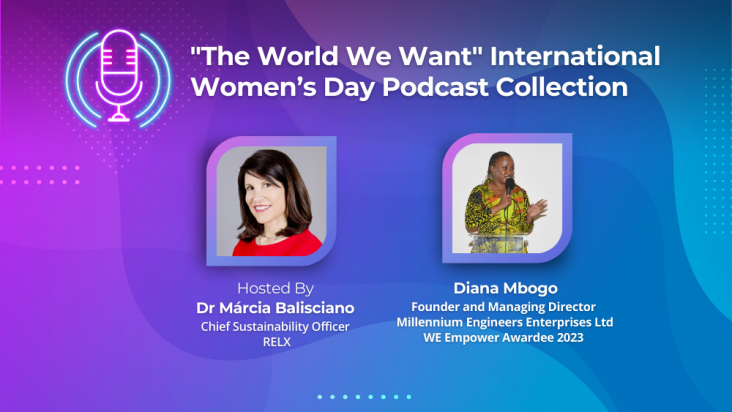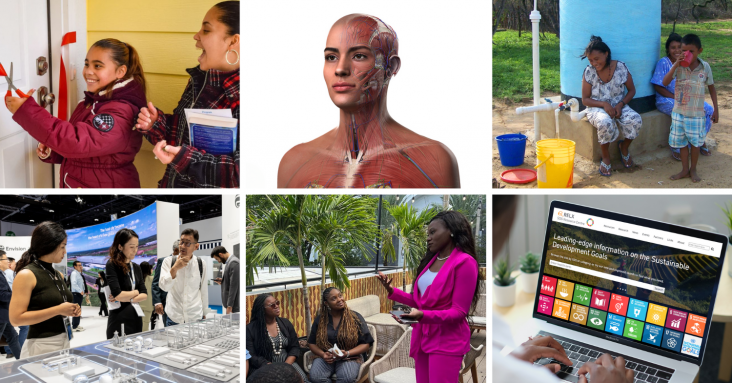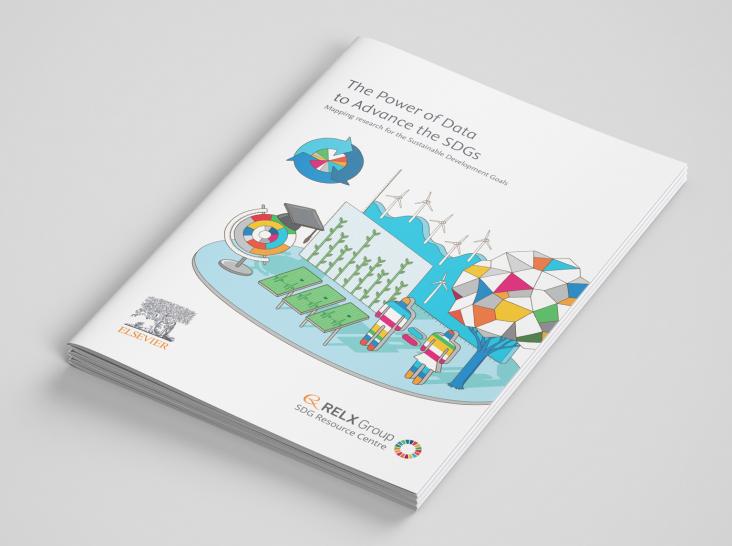
In this special edition of "The World We Want," Márcia Balisciano interviews Diana Mbogo, the Founder and Managing Director of Millennium Engineers in Tanzania. Diana, an award-winning entrepreneur, focuses on renewable energy solutions and is currently implementing the Sardine Fishing Industry Business Project. The project aims to transition the traditional, environmentally harmful methods of the sardine fishing industry toward more sustainable practices using solar drying facilities. Diana emphasises the critical connection between access to energy, particularly for women, and the broader goal of achieving the United Nations Sustainable Development Goals. Throughout the discussion, Diana shares her journey, challenges, and the transformative impact of her work on communities, highlighting the positive changes brought about by her innovative approach to the sardine industry.

In this episode of the "World We Want" podcast, Márcia Balisciano interviews Lene Bjorn Serpa, Director, Head of Corporate Sustainability & ESG, A.P. Moller - Maersk. They discuss how her work at Maersk aligns with the United Nations sustainable development goals and how companies can contribute to a positive change by engaging with sustainability from a corporate standpoint.
This study investigates the factors that influence travelers' intentions toward animal ethics in tourism and makes a significant contribution to methodological approaches and the body of knowledge in animal ethics in tourism.
The paper demonstrates the importance of a cross-sectoral approach in conservation planning to mitigate the impacts of industrial activities such as fishing, shipping, and deep-sea mining on biodiversity in the open ocean, offering a cost-effective solution for achieving conservation targets and promoting sustainable management in the face of "blue acceleration".
The solvents used during the production of heparin cause air and water pollution. One of the steps to achieve sustainable kidney care is to find a green alternative to heparin.
This chapter aligns with Goals 9, 11, 12 by emphasizing the responsible disposal of toxic building materials and providing guidance on selecting materials that have a positive effect on the health of occupants and the environment.
Elsevier,
Mxene-Based Hybrid Nano-Architectures for Environmental Remediation and Sensor Applications: From Design to Applications, Micro and Nano Technologies series, 2024, Pages 113-127
This chapter aligns with Goals 12 and 13 by highlighting the importance of various MXene-based hybrid nanomaterial types in the elimination of heavy metals from wastewater.
The cascading effects of biodiversity decline on human well-being present a pressing challenge for sustainable development.

As we pass the halfway point for the SDGs, many of the goals are worryingly off track and progress on 85% of the target indicators has stalled or even reversed. Through our information, products and people, RELX remains committed to advancing the Goals. Here are some of the ways that we continue to support their achievement.

Access to information is critical in achieving the SDGs - empowering the public to make decisions, informing policy making and enabling effective implementation and monitoring. RELX businesses regularly produce and publish free to download reports and analytics that draw upon vast amounts of information and data in support of the SDGs. Explore some of the reports and tools developed to date.
